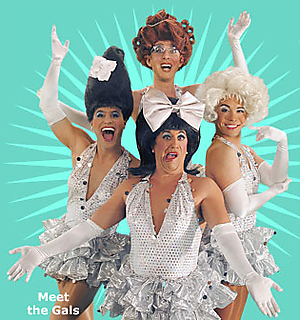Quote of the week
When a foreigner resides among you in your land, do not mistreat them. The foreigner residing among you must be treated as your native-born. Love them as yourself, for you were foreigners in Egypt. I am your God – Leviticus 19:33-34.
Consequently, you are no longer foreigners and strangers, but fellow citizens with God’s people and also members of his household, built on the foundation of the apostles and prophets, with Christ Jesus himself as the chief cornerstone. In him the whole building is joined together and rises to become a holy temple in the Lord. And in him you too are being built together to become a dwelling in which God lives by his Spirit – Ephesians 2:19-22.
Christian Bible
The politics of wearing a dress
A reader gets a bit hot under the collar about my post earlier this week on Fred Khumalo and men wearing dresses. She wants to know:
why so many gay men feel the need to not just ‘wear a dress’, but go to enormous lengths to resemble parodies of ageing hookers and then make spectacles of themselves in street parades. Ridiculous wigs, bucketfuls of ghastly makeup, falsies hanging out of tarty frocks, and the highest possible heels. It appears to me that this is how they see women, and – as a woman myself – I’m offended.
Before dealing with the substantive issue, it is important to point out that there are far fewer gay men who dress up as women than people who watch TV or read the newspapers might think. When the members of the media report on gay pride parades or other gay events, they will usually pick out the men in dresses and will interview them and splash their picture on the front page of the paper because that is what will sell the newspaper.
A person who attends a gay pride march or the gay and lesbian film festival for the first time would be surprised at how shockingly “normal” and boring most people look. But as a recent report shows, the lives of gay men, lesbians, transgender and intersex individuals are still far too often sensationalized by an essentially homophobic media.
In any case, it should not matter whether men dress up in drag because drag is in essence liberating – not oppressive. It might well be that some men who dress up as women are misogynist, but that does not seem to me to be close the essence of what drag is about.
The kind of drag that is now associated with gay  culture is in essence political in nature. Drag queens rose up in
culture is in essence political in nature. Drag queens rose up in
Those drag queens in
Drag is by its very nature exaggerated because it draws attention to the basic ridiculousness of the sex/gender system. This system is based on the notion that because men has penises they must wear pants, play rugby, drink beer, watch rugby and then hit or stab each other. Women have breasts, wear dresses and make-up, drink Shirley Temples’, watch ballet and talk about their husbands and their new kitchen appliances. Drag is not sending women up – it is sending up the patriarchal-imposed gender system.
At the same time, drag in its less obviously political incarnation is also about fun and about celebrating fabulousness – the fabulousness associated with the great powerful, headstrong, tempestuous but talented women of the stage and screen: woman like Judie Garland, Maria Callas, Barbara Sreissand and Miriam Makeba.
Now, I would be the first to admit that not many men who dress up in drag would justify their dressing up in such a political way, but one only has to spend a little bit of time with drag queens to know that they do not take anything seriously and they make fun of everything. They send up, ridicule, and poke fun of themselves and others in a way that subverts stereotypes and send up the status quo.
For a woman to take offence at this would probably be something hilarious that drag queens would love to make fun of.
BACK TO TOP

